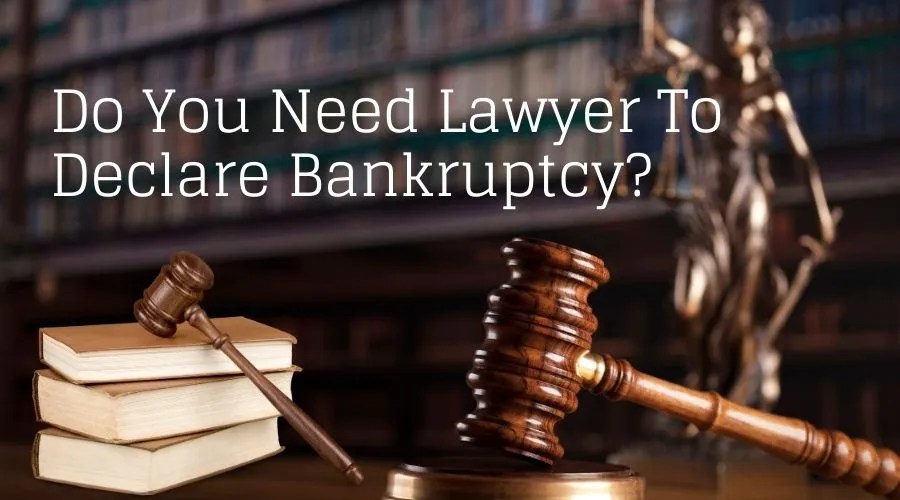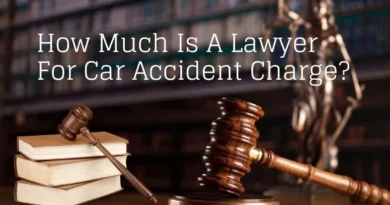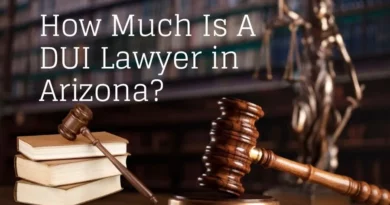Do You Need Lawyer To Declare Bankruptcy? Chapter 7 & 13
Are you facing overwhelming debt and considering filing for bankruptcy? If so, you may need a lawyer to navigate the complex process. Bankruptcy laws can be intricate, and making informed decisions regarding your financial future is crucial. In this article, we will explore whether hiring a lawyer for bankruptcy is necessary, the benefits and drawbacks of doing so, and alternative options for those who prefer to handle the process themselves.
Understand The Term Bankruptcy
Before delving into the need for a lawyer, it’s crucial to grasp the fundamentals of bankruptcy. Bankruptcy law is governed by federal statutes and regulations that vary depending on the type of bankruptcy. The primary types of bankruptcy for individuals are Chapter 7 and Chapter 13.
Process of Declaring Bankruptcy
Declaring bankruptcy involves several key steps. These include assessing your financial situation, gathering relevant documents, completing mandatory credit counselling, filing a bankruptcy petition, attending a meeting of creditors, and potentially adhering to a court-approved repayment plan. Navigating this process can be complex and time-consuming.

Types of Bankruptcy
Chapter 7 Bankruptcy
Chapter 7 bankruptcy, or “liquidation bankruptcy,” involves liquidating non-exempt assets to repay creditors. It provides debtors with a fresh start by discharging the most unsecured debts. However, only some qualify for Chapter 7 bankruptcy, and the process can be daunting without professional guidance.
Chapter 13 Bankruptcy
Chapter 13 bankruptcy, often called “reorganization bankruptcy,” allows debtors to repay their debts through a court-approved repayment plan over three to five years. This type of bankruptcy is ideal for individuals with a regular income who want to retain their assets but need assistance in managing their debts effectively.
DIY Bankruptcy Filing Tips
If you decide to pursue bankruptcy without legal representation, here are some essential tips to consider:
- Educate Yourself: Familiarize yourself with the bankruptcy laws applicable in your jurisdiction. Research and understand the filing requirements, deadlines, and necessary forms.
- Utilize Online Resources: Many reputable websites and organizations offer free or low-cost resources to assist individuals filing for bankruptcy without a lawyer. These resources can provide guidance and support throughout the process.
- Seek Professional Advice When Needed: Even if you choose to handle the process yourself, consulting a bankruptcy lawyer for specific questions or concerns can be beneficial. Limited legal advice can ensure you are on the right track.
Can You Declare Bankruptcy Without a Lawyer?
Yes, it is possible to declare bankruptcy without a lawyer, and some individuals choose this option to save on legal fees. However, it is crucial to understand the complexities involved and the potential risks.
Bankruptcy is a legal process that requires careful adherence to the applicable laws and regulations. A minor mistake can have significant consequences, including case dismissal or loss of valuable assets.
When Should You Consider Hiring a Lawyer?
While filing for bankruptcy without a lawyer is technically possible, hiring legal representation is strongly recommended. Consider seeking a lawyer if:
- Your financial situation is complex, involving substantial assets, multiple creditors, or potential legal challenges.
- You anticipate disputes or objections from creditors during the bankruptcy process.
- Your income is above the median for your state, potentially affecting your eligibility for Chapter 7 bankruptcy.
- You are concerned about exempting your assets or needing guidance on protecting valuable possessions.
How to Find a Good Bankruptcy Lawyer?
Finding the right professional is essential if you’ve decided that hiring a bankruptcy lawyer is the right choice. Consider the following tips when searching for a good bankruptcy lawyer:
- Research and Read Reviews: Research bankruptcy lawyers using online resources and review websites. Read client reviews and testimonials to gain insights into their expertise and level of client satisfaction.
- Seek Recommendations: Ask friends, family, or other professionals for recommendations if they have experience with bankruptcy lawyers. Personal referrals can provide valuable insights and help you find a trusted professional.
- Consult Multiple Lawyers: Schedule initial consultations with a few bankruptcy lawyers to discuss your case and assess their expertise. This allows you to compare their services, fees, and comfort level in working together.
Advantages & Disadvantages of Hiring a Lawyer for Bankruptcy
While it is possible to file for bankruptcy without a lawyer, seeking professional legal advice is highly recommended due to the complexity of the process and potential consequences. Let’s explore the benefits and drawbacks of hiring a lawyer for bankruptcy.
Benefits of Hiring a Lawyer
- Expertise: Bankruptcy lawyers specialize in this area of law and possess in-depth knowledge of the legal framework, exemptions, and filing requirements. They can guide you through the process, ensuring you make informed decisions and avoid costly mistakes.
- Protection from Mistakes: Filing for bankruptcy involves a considerable amount of paperwork, and any errors or omissions can lead to delays or even dismissal of your case. Lawyers can help you complete the paperwork accurately and submit it within the required deadlines.
- Debt Relief Options: Bankruptcy lawyers assess your financial situation holistically and explore alternative debt relief options beyond bankruptcy. They can determine if bankruptcy is the most suitable choice for you and provide personalized advice based on your circumstances.
Drawbacks of Hiring a Lawyer
- Cost: Hiring a lawyer for bankruptcy involves legal fees, which can be a significant financial burden for individuals already struggling with debt. However, weighing this cost against the potential benefits and long-term savings, a lawyer can provide is essential.
- Personal Involvement: Some individuals prefer to handle their bankruptcy proceedings personally, believing they can adequately manage the process without legal assistance. However, this approach requires a thorough understanding of bankruptcy law and can take time and effort.
Questions to Ask a Bankruptcy Lawyer
When meeting with potential bankruptcy lawyers, consider asking the following questions to evaluate their suitability for your case:
- How many bankruptcy cases have you handled, and what percentage of your practice is dedicated to bankruptcy law?
- Will you personally handle my case, or will other attorneys or paralegals be involved?
- What is your fee structure, and what services are included in your representation?
- How do you communicate with clients, and how quickly can I expect responses to my inquiries?
- Can you provide references or testimonials from past clients?


